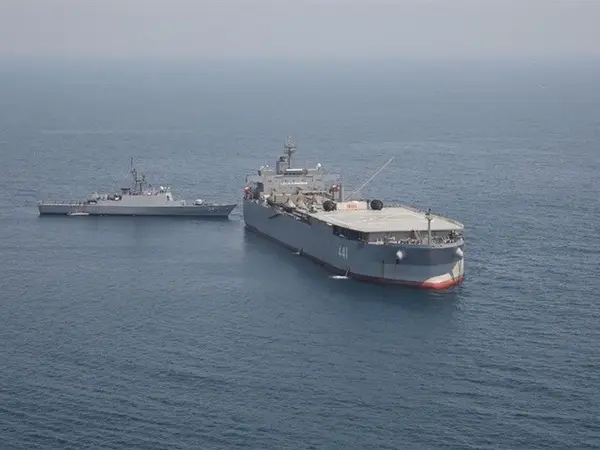The US says it “defies reason” for Iran to be part of a regional naval alliance while the Islamic Republic is the main reason for maritime insecurity in the Persian Gulf region.
US 5th Fleet and Combined Maritime Forces spokesperson Cmdr. Tim Hawkins told Breaking Defense, a digital news outlet on global military, “It defies reason that Iran, the number one cause of regional instability, claims it wants to form a naval security alliance to protect the very waters it threatens.”
Highlighting that in the past two years alone, Iran has attacked or seized 15 internationally flagged merchant vessels, Hawkins added that “Actions matter, which is why we are bolstering defense around the Strait of Hormuz with partners.”In its latest provocation in May, Iran seized two oil tankers transiting between UAE ports.
Iranian media claimed in recent days that a regional naval coalition is in the offing.On Saturday, Iran's navy commander officially announced that his country and Saudi Arabia, as well as the United Arab Emirates, Qatar and Bahrain, plan to form a naval alliance, that would include Iraq, India and Pakistan.
Admiral Shahram Irani also claimed that virtually all the countries located in the northern areas of the Indian Ocean have come to the conclusion that they should stand by Iran and jointly establish security through enhanced synergy and cooperation. He also referred to several joint naval drills with Oman as well a separate naval coalition consisting of Iran, Russia and China.
It came a few days after the UAE unexpectedly announced on May 31 that it had withdrawn from the US-led Bahrain-based 38-nation Combined Maritime Forces coalition, but on June 1, the US 5th Fleet refuted the UAE claim, saying that the country was still a "partner" in the multinational coalition.
"As a result of our ongoing evaluation of effective security cooperation with all partners, two months ago, the UAE withdrew its participation in the Combined Maritime Forces," the Emirati Ministry of Foreign Affairs said in a statement, to which Hawkins reacted by saying “Bottom line, UAE is currently a CMF partner. That hasn’t changed.”
The fact that none of the countries that Iran mentioned as its prospective coalition partners as well as the CMF partners have not confirmed or rejected the recent developments indicates that Iranian claim is dubious.
However, if it is true, it means the position of the United States in West Asia could become weaker. It is not long ago that the US had a large number of forces in Iraq and Afghanistan.
The Combined Maritime Forces task force, headquartered at the US naval base in Bahrain, works on security, counterterrorism and counter-piracy in the Red Sea and the Persian Gulf areas. But in fact, the US and Israel were trying to forge a regional coalition to contain Iran, including an air defense network.
Iranian officials often make exaggerated claims to boost domestic morale, therefore Irani’s claims have to be echoed by regional Arab countries to have any credibility.
The region contains some of the world's most important shipping routes where, since 2019, suspected Iranian attacks began against oil tankers amid tensions with the United States. The Obama, Trump and Biden administrations chose not to retaliate against Iranian naval provocations over the years or show a convincing military deterrent response.
Last June, Israel called for a military front with US leadership in the Middle East, saying Israel and Arab countries that share its worries about Iran should build up their military capabilities under Washington's aegis. A few months earlier in March, a summit of foreign ministers was held in Israel with the participation of the US, the UAE, Bahrain, Morocco and Egypt. Israel highlighted the event as a show of unity against Iran.
